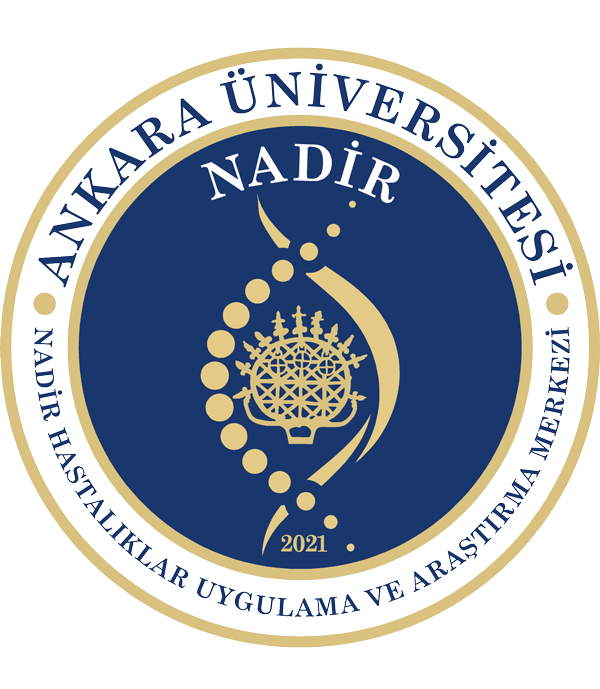| SUNDAY 8 August 2021 | Official Gazette | Number : 31562 |
REGULATION |
||
By Ankara University:
REGULATION ON ANKARA UNIVERSITY RARE DISEASES APPLICATION AND RESEARCH CENTERPART ONEObjective, Scope, Basis and DefinitionsObjectiveARTICLE 1 – (1) The purpose of this Regulation is to regulate the procedures and principles regarding the objectives, fields of activity, governing bodies, duties of the governing bodies, and course of operation of Ankara University Rare Diseases Application and Research Center. ScopeARTICLE 2 – (1) This Regulation covers the provisions regarding the objectives, fields of activity, governing bodies and duties of the governing bodies and course of operation of Ankara University Rare Diseases Application and Research Center. Basis ARTICLE 3 – (1) This Regulation has been prepared based on sub-subparagraph (2) of subparagraph (d) of the first paragraph of Article 7 and Article 14 of the Higher Education Law dated 4/11/1981 and numbered 2547. DefinitionsARTICLE 4 – (1) For the purposes of this Regulation following definitions shall apply; a) Advisory Board: The Center’s Advisory Board, b) Center (RARE): Ankara University Rare Diseases Application and Research Center, c) Director: Director of the Centre, d) Rector: Rector of Ankara University, d) University: Ankara University, e) Board of Directors: Center’s Board of Directors. PART TWOObjectives and Fields of Activity of the CenterThe objectives of the centerARTICLE 5 – (1) The objectives of the Center are to determine the prevalence and burden of rare diseases, to develop prenatal and newborn screening strategies, to establish a national registry system; to implement existing diagnostic and therapeutic methods for rare diseases with scientific data, to increase the accessibility of existing genetic diagnostic techniques, to develop new diagnostic and therapeutic methods; to raise awareness at the public level about the diagnosis and treatment of rare diseases and ensuring the correct and beneficial use of information; to evaluate the efficacy and toxicity of orphan drugs and advanced medical treatments, to plan basic research that can be directly reflected in clinical applications and to ensure interdisciplinary organization; to plan R&D and production activities for orphan drugs and advanced medical treatments. Center’s field of activityARTICLE 6 – (1) The activities of the Center are as follows: a) To determine the burden of disease and to develop solutions. b) To work to create a national registration system. c) To develop strategies and make recommendations for prenatal and newborn screening. ç) To make genetic counselling widespread and accessible. d) To develop new strategies for early diagnosis and treatment. e) To develop kits, methods and the like that can be used in diagnosis and follow-up. f) To develop diagnostic algorithms. g) To define treatment models. ğ) To prepare treatment guidelines. h) To provide services and consultancy on the use of scientific data in the diagnosis and treatment of rare diseases. ı) To contribute to the development of national rare disease policies by providing consultancy to relevant ministries and funding organizations for the use of scientific data. i) To create awareness about the diagnosis and treatment of rare diseases at the public level, to use information in a beneficial way and to create the right supply and demand. j) To plan and conduct research for the development of new orphan drugs and advanced medical treatments.
PART THREEGoverning Bodies and Duties of the Center Governing bodies of the CenterARTICLE 7 – (1) The governing bodies of the Center are as follows:
DirectorARTICLE 8 – (1) The Director shall be appointed by the Rector from among the faculty members of the University for two years. The Director whose term expires may be reappointed by the same procedure. (2) The Director shall present two persons among the faculty members of the University for the approval of the Rector to be appointed as deputy directors. Deputy directors shall perform the duties assigned by the Director. The duties of the Deputy Directors end with the expiration of the term of the Director. Deputy directors shall attend Board of Directors meetings without voting rights. Director’s dutiesARTICLE 9 – (1) The duties of the director are as follows:
ç) To report to the Rector on the activities of the Center at the end of each year.
Board of DirectorsARTICLE 10 – (1) The Board of Directors consists of a total of 7 members, including the Director and 6 members appointed by the Rector upon the recommendation of the University Board of Directors.
Duties of the Board of DirectorsARTICLE 11 – (1) The Board of Directors shall perform the following duties regarding the management of the Center:
ç) To evaluate and decide on the requests of the Center staff regarding education, practice, research, consultancy and publication.
Advisory Board and its dutiesARTICLE 12 – (1) The Advisory Board consists, under the chairmanship of the Director, of at least fifteen people to be appointed from among the faculty members of the University or other universities experienced in the fields of activity of the Center, and experts from relevant institutions and organizations upon their request. Members of the Advisory Board shall be appointed by the Rector for two years upon the recommendation of the Director.
The Advisory Board shall make suggestions and contributions about the work of the Centre. |
||
